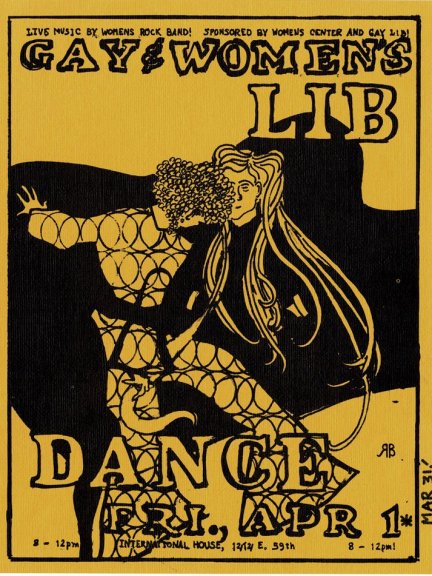24.10.24 — 19:15
CN D à Pantin
Echoing the workshop held the week of October 21st, this conference-performance, which once again brings together the three performers, combines dance, text and images around the question of the archive, or rather archives. All three carry with them multiple histories, South and North American, European, Latinx, (post)colonial, white and non-white, queer, lesbian, bi, cis, trans. Together, they ask themselves what we can learn from spending time in contact with past lives that have been through hard times, have invented lifestyles, that sometimes had to face loneliness, who partied, loved, struggled. What ancestors and stories live within us? How can we understand and reveal the multiple memories that influence the way we move and create gestures?
Emma Bigé
Emma Bigé studies, writes, translates and improvises between the fields of dance studies, queer studies and environmental inhumanities. A translator and textual artist, her books include Mouvementements. Écopolitiques de la danse (La Découverte, 2023), co-edited books on dance improvisation (Steve Paxton: Drafting Interior Techniques, 2019; The Apple Perspective. Histories, Politics and Practices of Contact Improvisation, 2021) and she has co-translated English-language transfeminist writers (including Jack Halberstam, Sara Ahmed, Alexis Pauline Gumbs, Karen Barad, Eva Hayward, Marquis Bey...). A curator, Emma Bigé has also created two exhibitions-in-dance, one on the history of Contact Improvisation (Musée de la danse, 2018) and the other on the work of North American improviser Steve Paxton (Culturgest, 2019), and is leading a long-term project, Zones d’Atterissage Temporaire, dedicated to the installation of siesta zones in various European cities. Bigé holds an agrégation and a PhD philosophy, and she irregularly teaches epistemology at art schools and choreographic centers.
Marcela Santander Corvalán
Born in Chile, Marcela Santander Corvalán trained in Milan and then at the CNDC in Angers. She also graduated in history and dance from the University of Paris 8. Since 2011 she has been working alongside choreographers Dominique Brun, Faustin Linyekula, Julie Nioche, Ana Rita Teodoro and Volmir Cordeiro. Her collaboration with choreographer Mickaël Phelippeau included the artistic direction of À domicile, in Guissény, Brittany. Since 2014 she has put her name to Époque with Volmir Cordeiro (2015), her first solo Disparue (2016), MASH with Annamaria Ajmone (2017), and Quietos (2019). In 2020 she co-authored the performed conference CONCHA – Histoires d’écoute on the theme of listening, with Hortense Belhôte. Marcela Santander Corvalán was associate artist at the Quartz theatre in Brest from 2014 to 2017 and is currently at La Manufacture, CDCN Nouvelle-Aquitaine Bordeaux La Rochelle.
Hélène Giannecchini
Hélène Giannecchini is a writer, art theorist and teacher. She holds a PhD in literature, and specializes in the relationship between text and image. Her books include Une Image peut-être vraie (2014), Voir de ses propres yeux (2020) and Un désir démesuré d’amitié (2024), published by Éditions du Seuil in the “La Librairie du XXIe siècle” collection. Obsessed by images, she looks at them, exhibits them, collects them, writes about them and shares them. She is head of the Alix Cléo Roubaud collection, the artist to whom she dedicated her first book, and her work lies at the crossroads of literature, art history and theory. Her second book, Voir de ses propres yeux (Seeing with one’s own eyes), written at the Villa Médicis, is a novel that blends the story of mourning with the history of anatomy and dissection. Her current research focuses on queer archives from the second half of the 20th century. In particular, she is working on the work of photographer Donna Gottschalk. She also wrote the libretto for Cortège, based on images from San Francisco’s Gay, Lesbian Bi and Trans Historical Society. This piece for symphony orchestra and electronics, composed by Sasha Blondeau, choreographed and performed by François Chaignaud, was performed at the Philharmonie de Paris in 2023. In 2021 and 2023 she spent time in writing residencies at the CN D in Pantin, pursuing her explorations of the links between dance, image and writing.
